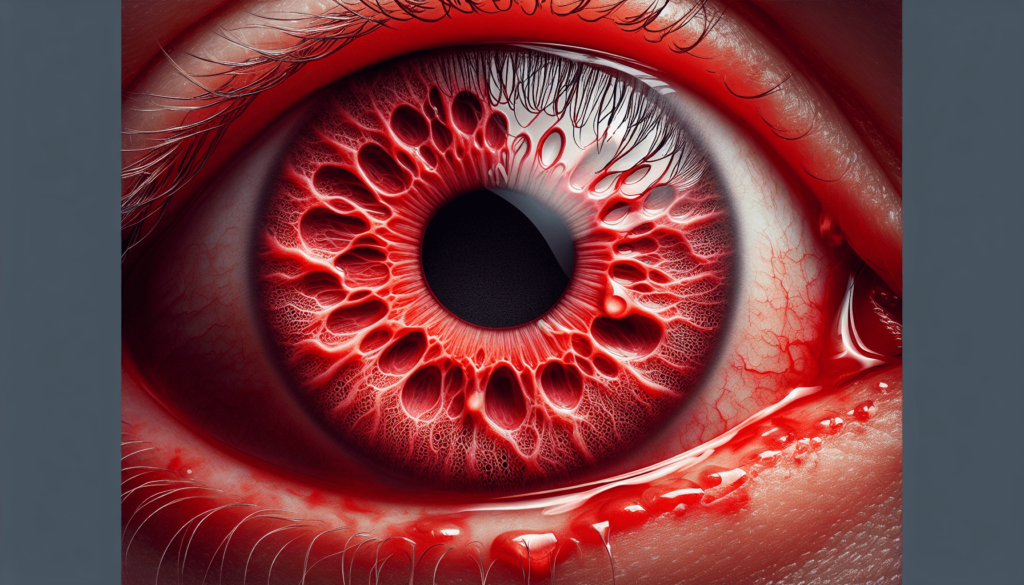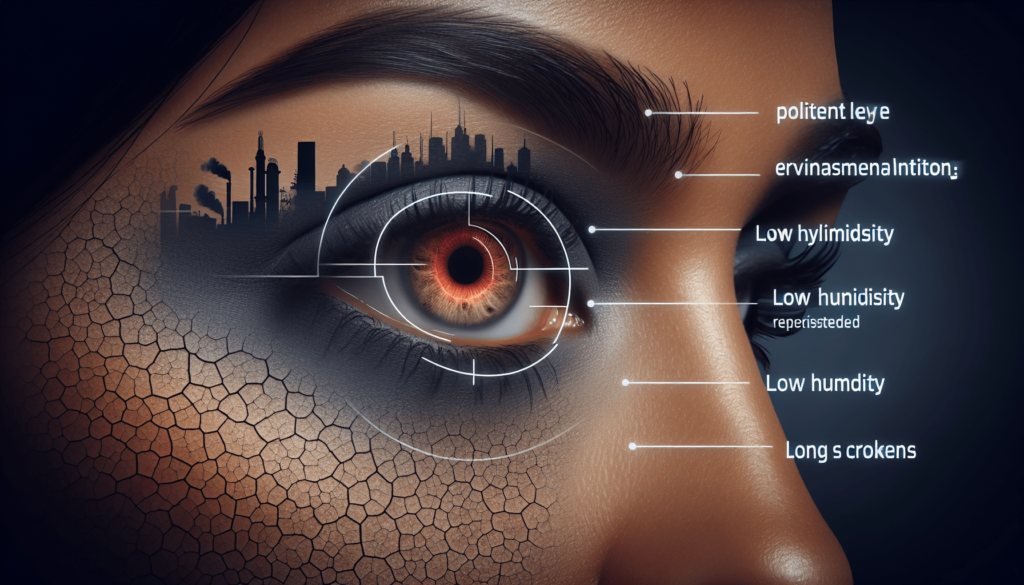Welcome to an informative article about the correlation between allergies and dry eye syndrome. If you’ve been experiencing the irritation and discomfort of dry eyes, it may be due to your allergies. Allergies can indeed contribute to the development of dry eye syndrome, as the inflammation and immune responses triggered by allergies can impact the production of tears and the overall health of your eyes. Stay tuned to learn more about how allergies can lead to dry eye syndrome and what you can do to alleviate the symptoms.
Can Allergies Lead To Dry Eye Syndrome?
Have you been suffering from dry eyes and wondering if your allergies could be the culprit? In this article, we will explore the connection between allergies and dry eye syndrome. Let’s dive in and uncover the facts.
Understanding Dry Eye Syndrome
Dry eye syndrome is a common condition that occurs when your eyes do not produce enough tears or when the tears evaporate too quickly. This can result in discomfort, irritation, and even vision problems. If you experience dry, gritty, or burning eyes, you may have dry eye syndrome.
Did you know that allergies can exacerbate the symptoms of dry eye syndrome? Let’s take a closer look at how allergies can impact your eye health.
Allergies and Dry Eye Syndrome
Allergies are your body’s immune system overreacting to a substance that is usually harmless, such as pollen, pet dander, or dust mites. When you have allergies, your body releases histamines to fight off these substances, leading to symptoms like sneezing, runny nose, and itchy eyes.
If you suffer from allergies, you may also be at a higher risk for developing dry eye syndrome. The histamines released during an allergic reaction can cause inflammation of the eyes’ surface, leading to increased tear evaporation and reduced tear production.
How Allergies Can Impact Tear Production
Allergies can affect the production of tears in several ways. Firstly, histamines can disrupt the natural balance of tears in your eyes, leading to decreased tear production. Additionally, the inflammation caused by allergies can damage the tear-producing glands, further reducing tear production.
If you have allergic conjunctivitis, a common eye condition caused by allergies, you may experience increased tear evaporation due to the constant rubbing and itching of your eyes. This can lead to a vicious cycle of dry eyes and irritation.
Identifying Allergic Conjunctivitis
Allergic conjunctivitis is a common condition that causes red, watery, and itchy eyes. It is often accompanied by other allergy symptoms, such as sneezing, nasal congestion, and a scratchy throat. If you experience these symptoms, especially during allergy season or when exposed to allergens, you may have allergic conjunctivitis.
The Different Types of Allergic Conjunctivitis
There are several types of allergic conjunctivitis, including:
- Seasonal allergic conjunctivitis: Triggered by seasonal allergens, such as pollen, grass, and ragweed.
- Perennial allergic conjunctivitis: Caused by year-round allergens, like dust mites, pet dander, and mold.
- Vernal keratoconjunctivitis: A severe form of allergic conjunctivitis that typically affects young males and causes intense itching and sensitivity to light.
- Atopic keratoconjunctivitis: Common in patients with atopic dermatitis and eczema, leading to chronic eye inflammation and discomfort.
By identifying the type of allergic conjunctivitis you have, you can better manage your symptoms and prevent complications like dry eye syndrome.
Managing Allergies to Prevent Dry Eye Syndrome
If you have allergies and are concerned about developing dry eye syndrome, there are several steps you can take to manage your allergies and protect your eye health.
Avoid Allergens
The best way to prevent allergic reactions is to avoid the allergens that trigger them. Identify your allergy triggers, such as pollen, pet dander, or dust mites, and take steps to minimize your exposure to them. This may include using air purifiers, keeping windows closed during peak allergy seasons, and regularly cleaning your home to reduce allergen buildup.
Use Allergy Medications
Over-the-counter and prescription allergy medications can help alleviate allergy symptoms and reduce inflammation in your eyes. Antihistamines, decongestants, and corticosteroids are commonly used to manage allergic reactions and prevent complications like dry eye syndrome. Consult your doctor for the best allergy treatment plan for your specific needs.
Try Allergy Eye Drops
Allergy eye drops are a popular treatment option for allergic conjunctivitis and can provide quick relief from itching, redness, and irritation. There are several types of allergy eye drops available, including antihistamine and mast cell stabilizer eye drops. These drops can help reduce inflammation in your eyes and prevent dry eye symptoms.
Maintain Eye Hygiene
Proper eye hygiene is essential for managing allergic conjunctivitis and preventing dry eye syndrome. Wash your hands frequently to avoid spreading allergens to your eyes, and avoid rubbing or touching your eyes, as this can worsen your symptoms. Use a clean, damp cloth to gently wipe away any discharge or debris from your eyes, and avoid wearing contact lenses during allergy flare-ups.
When to See a Doctor
If you are experiencing persistent dry eye symptoms, despite managing your allergies, it is essential to see an eye care professional for a comprehensive eye exam. Your doctor can evaluate the health of your eyes, diagnose any underlying conditions, and recommend the best treatment options for your specific needs.
Signs to Look Out For
Some signs that you may need to see an eye doctor include:
- Severe or chronic dry eye symptoms.
- Blurred vision or sensitivity to light.
- Eye pain, redness, or swelling.
- Difficulty wearing contact lenses.
- Changes in your vision quality or field.
If you notice any of these symptoms, schedule an appointment with your eye doctor to get the care and treatment you need.
Conclusion
In conclusion, allergies can indeed lead to dry eye syndrome and other eye complications. By understanding the connection between allergies and dry eyes, you can take proactive steps to manage your allergies, protect your eye health, and prevent complications like dry eye syndrome. Remember to consult your doctor for personalized treatment recommendations and to ensure the long-term health of your eyes. Take care of your eyes, and they will take care of you!



